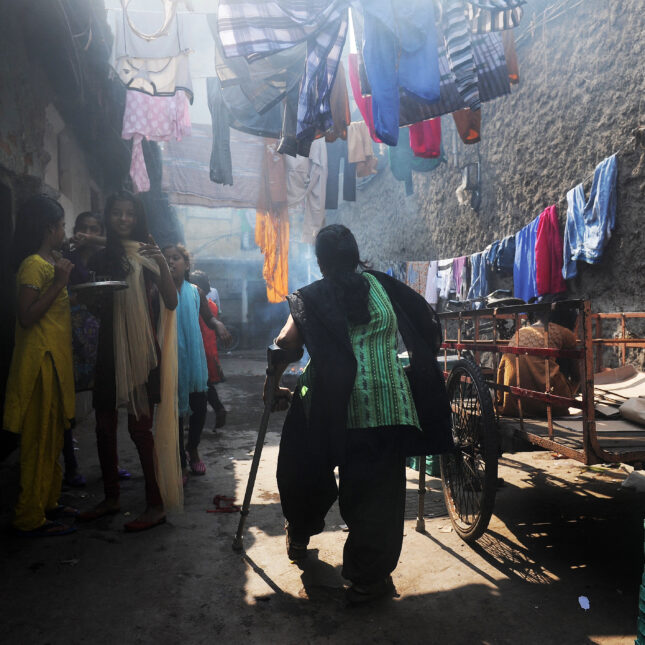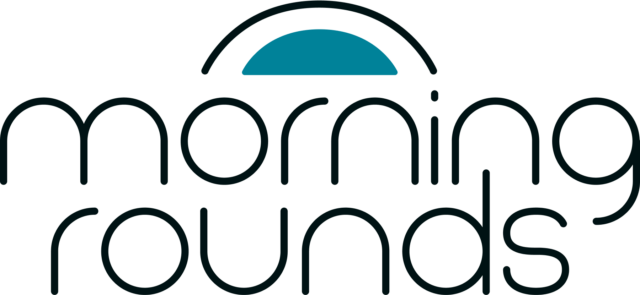
Vijay Yeldandi was an energetic and rambunctious toddler when he was growing up in India. But at the age of two, he came down with polio and became paralyzed from the neck down.
Over time, “I learned how to walk with braces and crutches,” recalls Yeldandi, now a professor of medicine and surgery at the University of Illinois Chicago who is primarily based in India. “I had a different childhood, because I would see all of my peers going out, my siblings going out and playing cricket, and I was just sitting and watching them.”
For many people like Yeldandi who grew up in India or have family members there, polio is a recent — a deeply personal — memory. Vaccines for the disease didn’t become widely available in the country until the early 1970s, nearly two decades after they were distributed in the U.S. At that time, India had an estimated 200,000 polio cases per year. It was finally declared polio-free in 2014.
Now, as vaccine skepticism and anti-vaccine rhetoric gain more political power with president-elect Donald Trump’s nomination of Robert F. Kennedy Jr. as health secretary, Indians and Indian-Americans who went on to careers in medicine and public health are expressing alarm at the possibility that policy changes could allow the virus to spread again in the U.S. That worry has deepened in the wake of a recent New York Times story about how lawyer Aaron Siri, a longtime ally of RFK Jr. who is helping vet candidates for positions in the health department, brought forth legal challenges to the approval of polio vaccine in 2022.
Upon learning of Siri’s petition, “all I could see in my mind’s eye was the incredible suffering that polio has caused,” said Aparna Nair, a historian of public health and disability at the University of Toronto Scarborough. She thought of a family member who’d told her the story of “standing next to her son helpless while he cried receiving therapy for polio. He still has something of a limp.”
The Siri report underscored that the U.S. is in a political moment “unique in the history of public health,” Nair said — namely, that people close to power “are antagonistic to the idea that societies and states, working together, can ameliorate population-level illness and make life better for us.”
Trump has said that the U.S. is “not going to lose the polio vaccine” under the new administration, although he has expressed concerns about other childhood vaccines. RFK Jr. also recently said he’s “all for” the polio vaccine, but has cast doubts on the safety and efficacy of the vaccine in other comments in recent years.
The CDC recommends that all children get four doses of the polio vaccine, and all 50 states as well as Washington, D.C., require children entering public school or daycare to receive polio vaccinations. Many states do, however, allow exemptions for personal or religious reasons. Experts STAT spoke with were less concerned about the walking back of vaccine requirements, but did worry that increased rhetoric targeting the vaccine could lead more parents to choose not to vaccinate their children.
“I don’t know where this will go,” Nair said. “I’m sorry to be so bleak, but as a historian, seeing all of these forces come together, it’s a bit scary.”
The risks posed by anti-vaccine rhetoric
Polio is a viral disease that mainly affects children under the age of five. One in 200 cases leads to irreversible paralysis. It’s highly contagious and spreads orally or through tiny, often invisible amounts of feces. Thanks to the rollout of two vaccines for the disease, cases of polio have decreased by 99% since 1988. It’s gone from being endemic in 125 countries to just two.
“Polio is something very personal to me. I contracted polio when I was 15 or 18 months old and lost some power on my right lower limb,” said K.M. Venkat Narayan, a professor of global health at Emory University.
When he contracted polio, a vaccine was not yet available in India. The vaccines have prevented a total of 20 million cases of childhood paralysis since 1988, according to the World Health Organization. “To talk about anything to undo the vaccine programs that prevented this horrible disease is ridiculous,” Narayan said.
That sentiment was echoed by Madhukar Pai, the Canada Research Chair in Epidemiology and Global Health at McGill University.
“It’s actually really mind-boggling why we would turn our back on one of the biggest inventions that has saved millions of people from death and disability as the polio vaccine has,” he said.
Several experts wondered if the polio vaccine is in part a victim of its own success. Because the virus is a distant memory for most in the U.S., the public may be more susceptible to fearmongering about side effects of the vaccine rather than fearing the disease itself.
“It is infuriating to watch people who are so privileged just say, ‘Oh, well, I don’t need to worry about that.’ But you do, that’s the problem. Right now you don’t need to worry about it. But we are facing down the barrel of vaccine preventable diseases reemerging,” said Grace Rossow, a polio survivor and advocate who was born in India and now lives in the U.S.
The experts who spoke with STAT were not worried about imminent outbreaks of polio across the country. But they emphasized the need to maintain high rates of vaccination to protect communities if someone gets polio while traveling abroad. If there are pockets of populations where vaccinations sink, the people who live there become susceptible to outbreaks. This is likely how polio spread in a Hasidic Jewish community in 2022, leading to the first case of paralytic polio in over a decade in the U.S.
If small numbers of people in the U.S. begin refusing to vaccinate children for polio, it could also have global consequences, experts said. Unvaccinated Americans might get polio and then spread the virus in countries where vaccination rates are not as high, putting already-vulnerable people at higher risk, notes Nahid Bhadelia, the director of Boston University’s Center on Emerging Infectious Diseases, whose uncle in India had polio.
“I want to be the last generation who remembers the impact of polio,” she said. “I wish our children’s generation didn’t have to deal with this anymore. I wish polio would be the second disease we eradicate.”






